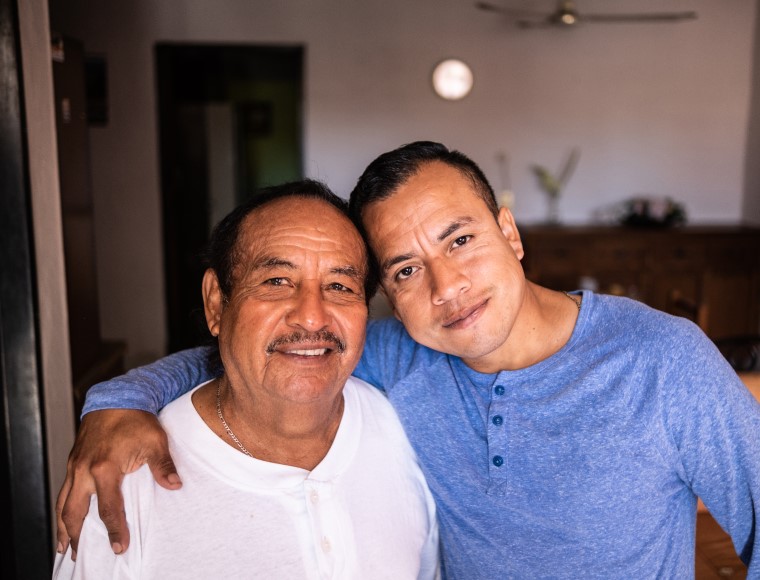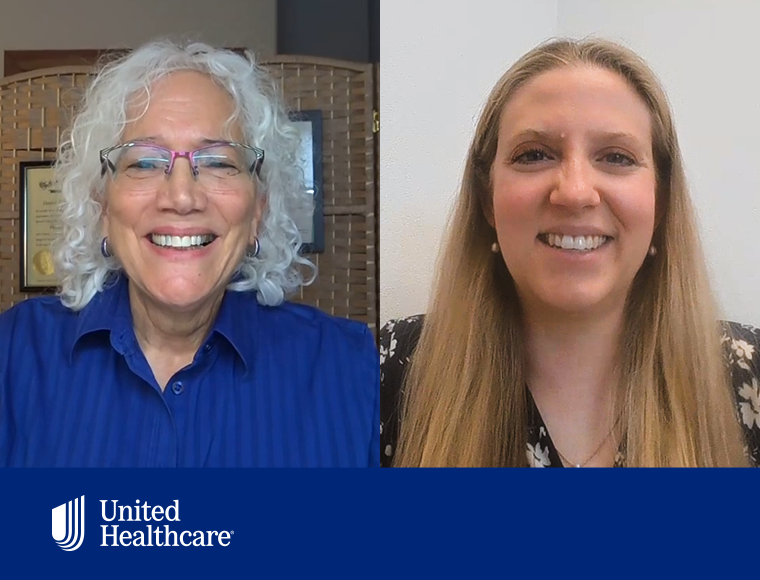Nevada program addresses maternal SUD
Substance use disorder (SUD) can have a significant impact on the health of pregnant people and their children. SUD is associated with health complications during pregnancy and delivery as well as poor health outcomes for infants that can inhibit their long-term development.1 The prevalence of maternal SUD has increased dramatically in the United States; between 2007 and 2016, 7% of mothers who gave birth in hospitals had SUD diagnoses.2 In Nevada, the State’s Department of Health and Human Services Office of Analytics estimates that an average of 42 babies are born each year with prenatal opioid substance use.3 Some parents with SUD receive limited or no prenatal care due to stigma, fear of losing custody of their children, or because of unmet social needs like transportation.2
These barriers can be compounded by challenges accessing care. 47% of Nevada’s counties are maternity care deserts, and just 2.2% of the state’s maternity care providers practice in rural counties. 3 People of color experience stark disparities in accessing care: women who are Black or Hispanic who have opioid use disorder (OUD) are 60 to 75 percent less likely to receive or consistently use medication to treat OUD during pregnancy. 2 These statistics underscore the need to support more equitable access to SUD treatment to improve health outcomes for parents and infants.
UnitedHealthcare Health Plan of Nevada Medicaid provided a $65,000 grant to the Roseman University College of Medicine to expand access to EMPOWERED, a program serving pregnant and postpartum parents with OUD. The program seeks to support lasting recovery by pairing medication to treat OUD with comprehensive wraparound services to meet behavioral health needs and address social drivers of health. These services include:
- Connections to medical treatment
- Referral to treatment centers for substance use
- Individual and group therapy
- Peer support
- Linkage to community resources and supportive services
- Help with social needs like housing and job placement
- Assistance with obtaining necessities and baby items
The program was developed in 2018 by a neonatal intensive care unit pharmacist in Las Vegas who noticed an increase in the number of babies born with neonatal abstinence syndrome, or withdrawal from substances.
It is designed to empower individuals to be prepared for the birth of their babies, and to thrive as a caregiver, and to actively manage their health. Peer recovery support specialists, care managers and a community outreach team work together to provide tailored outreach, navigation services, community resources, and to encourage self-advocacy. It operates based on a harm-reduction model, meeting each parent where they are in recovery and allowing the greatest immediate need to guide the approach. The organization seeks to operate a compassionate model that recognizes that recovery is often not a linear process for all patients. This includes a focus on advocacy to reduce the stigma associated with SUD that can create barriers and prevent parents from accessing care.
“EMPOWERED's ultimate goal is to guide our clients through recovery, help them achieve stabilization, and ultimately build resiliency. We are not just aiming for sobriety; we are working towards helping these mothers create stable, fulfilling lives where they can thrive and care for their families. Resiliency is key – we want our clients to have the tools and strength to navigate life's challenges without returning to substance use. Through the power of compassion, understanding, and holistic care, EMPOWERED is proving that recovery is possible, and that every mother deserves the chance to write her own success story, free from the weight of societal stigma.”
The program, which began as a regional initiative in Clark County, now serves over 215 parents and 215 infants statewide. Watch the video below to hear from Crystal, a program participant, about how EMPOWERED has supported her recovery.
Sources
- https://www.macpac.gov/wp-content/uploads/2020/06/Chapter-6-Substance-Use-Disorder-and-Maternal-and-Infant-Health.pdf
- https://nationalpartnership.org/wp-content/uploads/2023/02/substance-use-disorder-hurts-moms.pdf
- https://www.marchofdimes.org/peristats/assets/s3/reports/mcd/Maternity-Care-Report-Nevada.pdf











